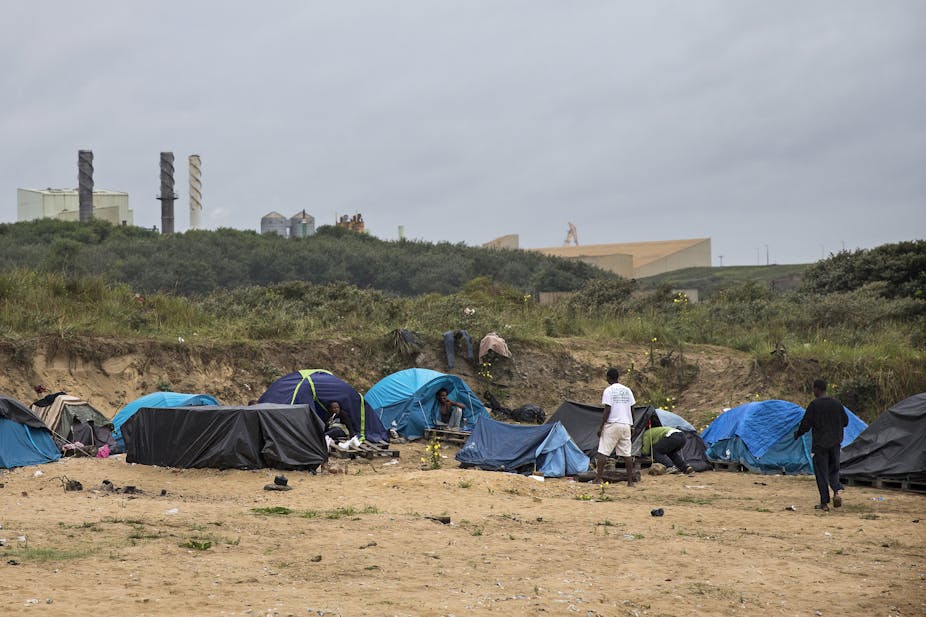Calais might be in France, but it is the front line of Britain’s battle to control immigration. Yet the governments of both countries continue to pass the buck between each other and very little progress has been made in the decade since the Sangatte refugee camp was closed a decade ago.
Surveys of UK public opinion paint a mixed picture and while there is significant support for reducing migration, views about why this is important vary considerably from reality. Pollsters Ipsos-Mori found that more than 60% of the public believed refugees made up the largest group when it comes to immigrants entering the UK. Respondents to a survey on the subject in fact overestimated the number of refugees coming into the country by as much as four times the real figure. Most migrants to the UK are actually students.
This gap between public perceptions and official immigration figures is nothing new. The difference between the facts and opinion often creates distortions that make it difficult for the government to reduce migration while simultaneously carrying public support. Calais is the perfect example of this problem – its problems indicate a failure to calm public concerns about tackling immigration.
Now, a crisis has erupted. French riot police have stepped up their efforts to close illegal camps housing up to 2,000 foreigners who mainly come from the developing world hoping to enter Britain. French officials estimate at least 35 migrants succeed in crossing the Channel every day. About 19,000 illegally attempted to enter Britain from Calais last year.
Britain requires immigration checks to the UK to take place in Calais. This is why so many people wait to try their luck at entering illegally. While this policy makes it easier for the UK to control entry from Calais, it also creates an increasingly dangerous environment and it is not clear who should be responsible.
The UK government supports the status quo. A Home Office spokeswoman recently said, “The conditions of any camps in France and the policing of them is the responsibility of the French authorities. If individuals have a genuine need of protection they should claim asylum in the first safe country they reach.” The view is that the camps are based in France and are therefore the responsibility of the French government. It should not direct blame to others for its own problems.
It is true that many people living in Calais camps want to enter the UK to claim asylum. While international law does not require refugees to seek asylum in any particular country, there is a longstanding principle that an asylum application should be made at the first available opportunity. In other words, refugees may have a right to asylum but not to have full discretion about where they apply. This is consistent with the UK government’s position: if individuals in Calais wish to claim asylum, then they should do so in France and not the UK.
But it is also true that the UK’s policy is under pressure. Today, it is reported that lorry drivers are being ordered to avoid Calais altogether since they could end up confronting what the Daily Mail calls “knife-wielding illegal immigrants who are trying to get to Britain.”
The tightening of border controls by recent UK governments coupled with the razing of refugee camps by the French authorities might have contributed to a more dangerous environment as migrants attempt more desperate, and violent, measures to cross the Channel.
It is clear the status quo and current stand-off should not be allowed to continue. No major British political party would support lifting current border restrictions in Calais given the state of public opinion but the problem of growing unrest in Calais will not be solved by ordering drivers to avoid the area. This will only relocate the problem and may even make things worse.
Burden or opportunity?
It’s a difficult problem but we need to start looking at immigration as an opportunity rather than a problem. We live in a world in which states compete with each other for people and skills more fiercely than ever before. Immigrants can bring significant economic and cultural benefits to a country, as was recently confirmed in a report by the House of Commons Treasury Select Committee. In a race for economic competitiveness internationally, it is important that every state is able to find new talent. It should have well managed immigration policies that support that goal. Better to have more than enough individuals to create jobs and wealth than too few.
Yet, the public continues to view immigration as a threat. UKIP’s Nigel Farage is even on record saying he’d oppose immigration even if it hurt the British economy.
People only seem to want policies that support their preconceptions, even if they are inaccurate in the first place. The economic case for migration is therefore rejected or ignored.
There is no ready solution to the crisis in Calais. But it is clear the UK government must do more than bury its head in the sand. There is a pressing need to begin a national conversation about migration control rather than continuing to develop policy on the hoof, in reaction to tabloid headlines.
The UK should also aim to view France as a partner and develop a common framework for managing migration across the Channel that improves access to and from Calais. This is in their shared interests and should not get lost in the pursuit of looking tough on immigration. This is a crisis that can be managed but only if there is leadership and a more constructive partnership between the countries involved.

